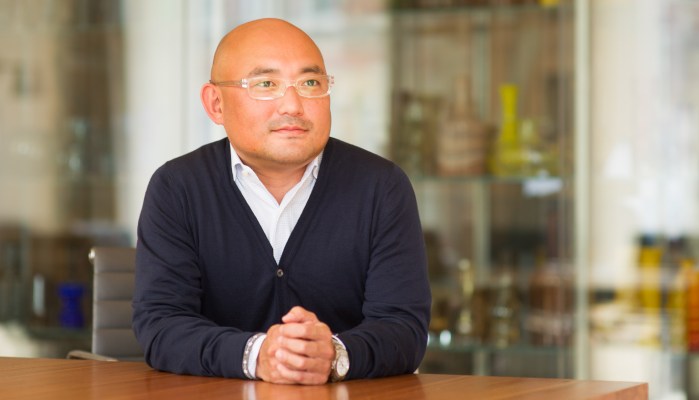If you’re a U.S.-based founder and you’ve ever wondered how to pitch the London-based firm Atomico or, more specifically, who to pitch, Hiro Tamura is someone you might get to know better. Though he’s based in London, Tamura is the general partner who spends the most time in the U.S. — about one week a month on average.
How does it work? Tamura says he gets ample help from Atomico’s executive-in-residence, Carter Adamson, who lives in Brooklyn and formerly cofounded one of the first modern music streaming services, Rdio. (Atomico backed the company, which shut down in 2015.) Adamson was also formerly the head of product at Skype, which was famously cofounded by Atomico founder Niklas Zennstrom.
Earlier this week we talked with Tamura about leading a fresh, $64 million investment in Clutter, an L.A-based on-demand storage company. We also asked what else Atomico has cooking stateside.
TC: You’ve been with Atomico for the past decade — so since its start, essentially. How did land at the firm?
HT: It’s an equal opportunity employer; I’m a Japanese guy. [Laughs.] I’ve been in different markets doing tech since 1996; I worked on Asian internet companies like China.com at Lehman in New York; afterward, a bunch of us left and launched a pan-Asian investment firm [focused on media and telecom] that covered Tokyo, Seoul, Greater China. I then started my own investment firm in Tokyo and I started working with Niklas and the board of Skype as an adviser [given that] I knew something about the region and how to help make scalable Internet companies effectively grow and navigate regulatory issues.
After eBay acquired Skype [in 2005], Niklas asked a few us to come along with him to focus on Atomico. In 2010, I moved from Tokyo to London to permanently reside in the U.K. and help grow the business.
TC: For some reason, I thought you actually ran a Silicon Valley outpost for Atomico.
HT: No, I love living in London, though I’m frequently seen in airports, hopping on and off flights to the U.S.
While Atomico looks at the European opportunity as being incredibly robust, we have a heritage of being global investor by virtue of who we were in our past lives, and there’s obviously a lot of innovation still happening in Silicon Valley and L.A. and New York and a number of other U.S. hubs that have emerged over the last five, six years. We feel like those trends will have a long-lasting impact, and we should be a part of them.
TC: How does a VC from London cover the U.S.?
HT: With the help of Carter, who has been helping me cover different markets over the last one-and-a-half years. He’s my proxy, though he looks nothing like me.
TC: Atomico doesn’t seem to lead many U.S. deals, though you did with Clutter.
HT: We don’t lead a lot of U.S. deals, though this isn’t our first. We also led Climate Corp., for example. And on the whole, we’ve done quite a few U.S. deals, including Zocdoc, Knewton, Stripe, Compass.
In terms of how many deals of ours are in the U.S., 30 percent is probably a good number to work off. With our earlier funds, maybe the percentage was even higher.
TC: How does it work? How do you manage your leads here?
HT: It’s old-fashioned hitting the pavement. We always get deal flow, but sometimes there’s a problem with timing or how the deal manifests itself. We definitely want to be earning our place; we don’t expect opportunities to be served up to us on a silver platter. So we work on relationships with entrepreneurs and early-stage funds in New York and L.A and San Francisco, and that has compounding effects.
Storage was always a space that I was interested in; Carter was really interested in it, too. There’s a $30 billion market there and we thought, gee, no one has done anything to seriously disrupt this static environment.
TC: Atomico has a great brand, but there’s no shortage of capital in the U.S., so why should founders seek you out?
HT: Our value proposition is very clear. We bring knowledge, experience and the ability to execute, when necessary, on international market expansion. It might not be an imminent need for a company. But to the extent that there are global category winners, with places spinning up competitors much quicker than ever before, we can be very helpful when it comes to collaborating or cooperating or competing with other players in international markets.
Uber spent a lot of money to get into China, and it found very limited success there. That’s maybe a testament to needing to think about foreign markets faster.
TC: You’ve told me that you’ve done deals in almost every market, including Russia and Southeast Asia. Do deal terms differ much from market to market? I ask between even between San Francisco and New York, deal terms can differ.
HT: Every deal is structured differently. We like to have simple and entrepreneur-friendly, straightforward structures. I’ve seen terms that are heavily structured in later-stage U.S deals, where certain founders are getting forms of seniority over other investors and founders. In later-stage deals outside the U.S., terms are maybe less convoluted. Of course, China is an exception because it has its own rules, so let’s leave that in a big box. But in Europe, late-stage deals are more straightforward.
In terms of early stage deals, I think a Series A deal in the U.S. probably isn’t so different than in Europe. Terms and conditions transmit quickly now versus 10 years ago, and founders know what the [going terms] are. It’s good for them; they know it’s not like some sort of archaic form of terms and conditions in one geography and more advanced structuring in the U.S.
